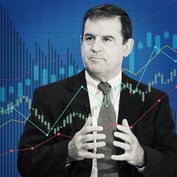What You Need to Know
- Advisors that exaggerate or mislead clients and shareholders about the use of ESG face significant potential penalties.
- They should understand the trade-offs implicit in exclusionary approaches for clients who prioritize values alignment for their investments.
- ESG factors are an important, but not the only, investment consideration for many of the largest and most influential asset managers.
Environmental, social and governance, or ESG, investing grew rapidly in recent years, with vigorous promotion from many large asset managers and generally positive media attention.
The honeymoon for ESG has ended this year, with high-profile intervention by regulators, lagging performance, and negative commentary from Tesla founder Elon Musk (“ESG is a scam”), Florida Gov. Ron DeSantis (“We are protecting Floridians from woke capital”) and The Economist (“Three letters that won’t save the planet”). Given the heated rhetoric surrounding ESG today, advisors should be a source of impartial guidance on this increasingly divisive topic.
Regulatory Scrutiny Is Growing
The Securities and Exchange Commission is focused on claims made by investment advisors and investment companies about ESG, with Goldman Sachs, Deutsche Bank and BNY Mellon among the companies either fined or under investigation. The overarching message from the SEC is that “advisors should say what they do and do what they say.” Advisors that exaggerate or mislead clients and shareholders about the use of ESG face significant potential penalties.
The SEC has also scrutinized asset manager use of ESG ratings from ratings firms such as MSCI, Morningstar and S&P. Differences between credit ratings and ESG ratings appear to be an area of regulatory concern, particularly when ESG ratings are the primary determinant of inclusion or exclusion in a portfolio.
Credit ratings for a single company tend to be highly correlated, providing an assessment of a bond issuer’s ability and willingness to pay. In contrast, multiple academic studies have shown that there is a low correlation of ESG ratings from major rating firms.
A closer look at the ESG ratings process provides a defensible explanation for ratings differences. A company that earns high marks from one ratings firm may earn dramatically lower ratings from another for legitimate reasons, as ESG ratings may use different criteria, weighting methodology or measurement approach,
Musk’s critique of ESG as a “scam” is an illustration of the ambiguity that can arise when trying to define whether a company is good or bad from an ESG perspective. Tesla is a favorite of environmentally focused investors for its leadership in the climate transition. Social- and governance-focused investors, however, may be less enthusiastic about Tesla given shortcomings in the firm’s board structure, Musk’s battles with regulators, and labor relations that have arguably shortchanged worker safety.
ESG Performance Has Lagged Broad Benchmarks This Year
Some enthusiastic promoters of ESG investing assert that ESG-focused funds will provide superior performance to that of non-ESG funds, a claim seemingly validated by performance of ESG-focused funds from 2016 through 2020. Sentiment toward ESG has turned more skeptical this year. Underperformance of many ESG-based funds has contributed to rising anti-ESG sentiment and launches of anti-ESG or “anti-woke” investment offerings.
The assertions of the most vocal proponents and detractors may neglect relevant factors that advisors should consider. ESG-focused funds frequently hold a higher proportion of technology stocks and a lower proportion of energy stocks relative to broad-based indexes, contributing meaningfully to outperformance when technology stocks were market leaders and energy stocks market laggards from 2016 through 2020.








 August 25, 2022 at 04:33 PM
August 25, 2022 at 04:33 PM












 Copyright © 2024 ALM Global, LLC. All Rights Reserved.
Copyright © 2024 ALM Global, LLC. All Rights Reserved.